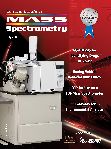The 56th Annual ASMS Conference: A Review
Special Issues
A summary of the five-day mass spectrometry conference held this month in Denver, Colorado.
The 56th ASMS Conference on Mass Spectrometry and Allied Topics was held from June 1–5, 2008, at the Colorado Convention Center in Denver, Colorado. As in previous years, the conference attracted thousands of attendees.
The opening program of the conference was held at 6:45 pm on Sunday, June 1. The plenary lecture, "Improbable Research — Spectrometric and Otherwise," was delivered by Marc Abrahams, of the Annals of Improbable Research.
Among the highlights of the week, the 2008 Award for Distinguished Contribution in Mass Spectrometry, which recognizes a focused achievement in or contribution to fundamental or applied mass spectrometry, was presented to Dr. Alexander Makarov, Director of Global Reseaarch for Life Sciences Mass Spectrometry, Thermo Fisher Scientific, Inc., for his leading role in the creation of a high-performance orbital electrostatic trap, which he termed the "orbitrap."
The oral sessions, held from June 2 through June 5, covered such topics as label-free quantitation of proteins, using MSfor elemental analysis, discovering peptide biomarkers, MS characterization of carbohydrates, pharmaceutical drugs as environmental pollutants, and the role of mass spectrometry in the petroleum field.
In addition to the oral sessions and poster presentations, workshops were offered on Monday, Tuesday, and Wednesday evenings. These workshops were on topics of special interest, with a focus on new technology. Included on Monday were The Clinical Mass Spectrometry Space — Who's Driving?; New LC–MS Techniques and Strategies for Drug Metabolism; FTMS:The Perspectives; and Scientific Record Keeping: Pitfalls and Protocols. Tuesday's workshops included Key Challenges to Success with Metabolomics; Recent Triumphs in the Development and Applications of Ion Trap Mass Spectrometry; Cascading Reactions in the Gas Phase; Hydrocarbons and Other Compounds from Petroleum: Are We Ready for Alternative Sources?; and Flavor, Fragrance, and Foodstuff Interest GroupMeeting. On Wednesday, workshop participants were able to choose from Signal Suppression in LC–MS Determination of Environmental Contaminants; Ion Mobility–Mass Spectrometry:Strategies for Interpreting Structural Information; Peptide Fragmentation and Sequencing: How to Narrow the Gap?; The Costs of Maintaining Modern Mass Spectrometers: Creative Solutions Needed?; Perspectives on the Changing Role of Mass Spectrometry in Academia; and Progress in Field Forensics.
Companies exhibiting at the conference welcomed attendees to their Corporate Hospitality Suites in the Sheraton Hotel from 6:00–11:00 pm on Monday, Tuesday, and Wednesday. As always, conference participants enjoyed the opportunity to relax and enjoy casual conversation and refreshments with colleagues.
In a nod to the hosting city of Denver, the conference finale, held from 6:00–9:00 pm on Thursday, June 5, was a "Back to the West" party at the Hyatt Regency Hotel. Guests enjoyed a dinner of Colorado specialties followed by entertainment.
The 57th Annual ASMSConference will be held from May 31 through June 4, 2009, in Philadelphia, Pennsylvania.
For more information, contact ASMS at:
2019 Galisteo St., Building I-1
Santa Fe, NM 87505
Tel.: (505) 989-4517
Fax: (505) 989-1073
E-mail: office@asms.org

University of Rouen-Normandy Scientists Explore Eco-Friendly Sampling Approach for GC-HRMS
April 17th 2025Root exudates—substances secreted by living plant roots—are challenging to sample, as they are typically extracted using artificial devices and can vary widely in both quantity and composition across plant species.
Common Challenges in Nitrosamine Analysis: An LCGC International Peer Exchange
April 15th 2025A recent roundtable discussion featuring Aloka Srinivasan of Raaha, Mayank Bhanti of the United States Pharmacopeia (USP), and Amber Burch of Purisys discussed the challenges surrounding nitrosamine analysis in pharmaceuticals.
Silvia Radenkovic on Building Connections in the Scientific Community
April 11th 2025In the second part of our conversation with Silvia Radenkovic, she shares insights into her involvement in scientific organizations and offers advice for young scientists looking to engage more in scientific organizations.













